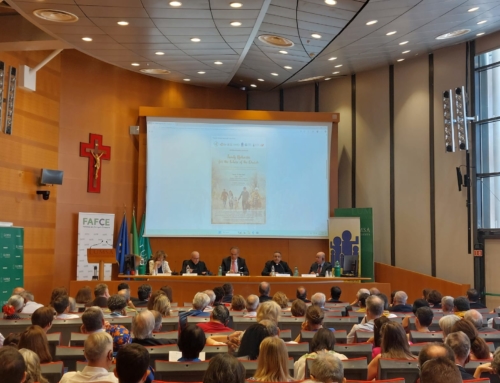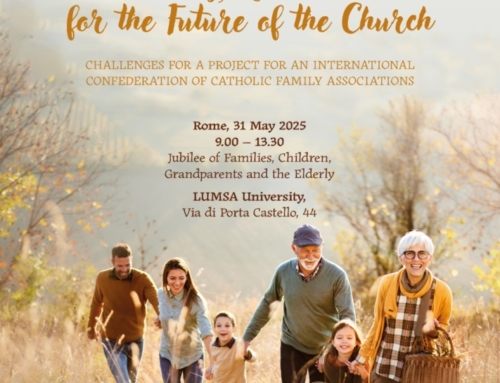8 April 2022
On the 7 and 8 of April 2022, the Italian Presidency of the Council of Europe presented in Rome the new Council of Europe’s Strategy for the Right of the Child for 2022-2027.
Children are specifically vulnerable to human rights violations when they live in weak legal systems and poor “family and social protection services and in justice, education and health systems”. Following its mandate to uphold human rights in Europe, the Council of Europe launched a new strategy for a better protection of children in Europe.
“Strategies [of the Council of Europe] help to identify needs and to find adequate responses, to set priorities and to effectively mainstream the rights of the child within the Council of Europe, mobilising all its forces around a shared vision and agenda. Strategies set clear milestones which can be periodically evaluated and reviewed to ensure progress and success.”
With the war in Ukraine, the Council of Europe also announced that children’s rights in crisis and emergency situations will be a new priority of the Strategy. The Strategy is now based on six priority areas, that remain similar to the one of the former Strategy for 2016-2021:
- Freedom from violence for all children
- Equal opportunities and social inclusion for all children
- Access to and safe use of technologies for all children
- Child-friendly justice for all children
- Giving a voice to every child
- Children’s rights in crisis and emergency situations
A zero-tolerance for violence against children, in all its forms
When it comes to the first priority – children free from violence – the Council of Europe will adopt a zero-tolerance policy, and look into synergies with the EU Strategy on the Rights of the Child to improve the real impact of both Strategies. It will also look into the possibility for an accession of the EU to the Council of Europe Convention on the Protection of Children against Sexual Exploitation and Sexual Abuse (Lanzarote Convention).
In addition, the Council of Europe will raise awareness on the many different forms violence against children can take, including “bullying, cyberbullying, (online) grooming, hate crime and peer violence, including harmful sexual behaviour by children”. The Lanzarote Committee published on the same day its new monitoring report, focused on the challenges stemming from the child self-generated sexual images and videos.
An increased attention for the protection of children online
The Covid-19 pandemic saw the increase in the risks faced by children online, especially to online sexual exploitation or sexual abuse.
For the first time, the Strategy included in the different forms of cyberviolence the “exposure to pornographic and other harmful content”. As stressed by FAFCE, the viewing of pornography can be assimilated to a cognitive rape for children, especially at a young age. Online pornography exposure also creates addictions problems for children. The Council of Europe stressed in the Strategy the challenge to “Prevent addiction to the digital environment and technologies, including virtual reality, and offer support services for the children and families concerned”.
As a concrete policy action, the Council of Europe will “promote digital education courses, both through schools and complementary programmes, for children, parents and other adults regarding the potential of new technologies and the risks encountered on the web (e.g. cyberbullying, stalking, sexual harassment and exploitation, identity fraud or theft, and addictions) and support the access to meaningful support services”.
The implementation of the European Social Charter with a support to children through families
The European Social Charter is considered to be one of the most exhaustive instruments for social and economic protection in Europe. One of the key role of the Council of Europe is to monitor and encourage the full implementation of the Charter, including for children. This priority was reaffirmed in the Strategy for 2023-2027.
The implementation of the Charter will have a specific attention for the cooperation with families, first guardians of the rights of children. the Council of Europe will be “Promoting the participation of children and parents in designing and evaluating services for children and families, and the training of service providers”.
“There is a need to continue increasing investment in children and their families, to ensure that all children, regardless of their status, have the same start in life and the same opportunities to fulfil their potential.”









